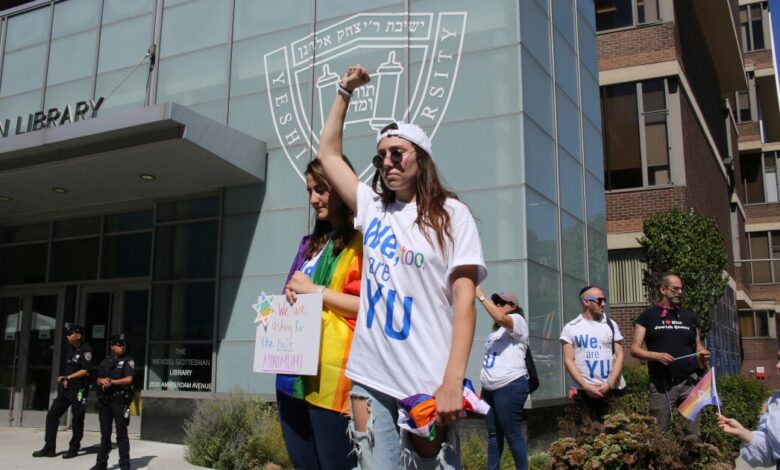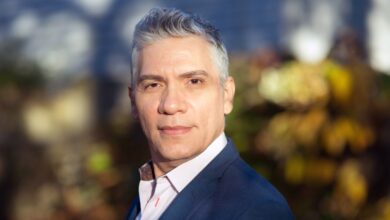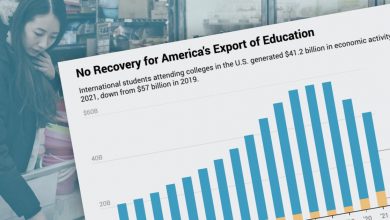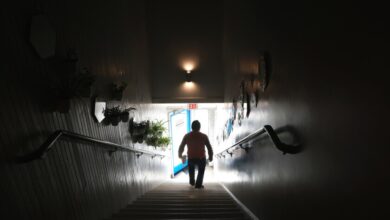The Supreme Court Ordered Yeshiva U. to Recognize an LGBTQ Group. Then Things Took a Turn.

[ad_1]
The LGBTQ student group embroiled in a legal battle with Yeshiva University said on Wednesday that it would temporarily step back from seeking official recognition after the campus suspended all undergraduate club activity last week. That drastic step came in response to a decision by the U.S. Supreme Court ordering the Modern Orthodox Jewish university to recognize the group while the university appeals a recent Supreme Court of New York State ruling against it.
In a statement on Wednesday, the group, YU Pride Alliance, said it would agree to a stay of the N.Y. justice’s order that the group be given the same resources as other student groups. Calling it a “painful and difficult decision,” the alliance decried the university’s decision to suspend other club activity.
“YU is attempting to hold all of its students hostage while it deploys manipulative legal tactics, all in an effort to avoid treating our club equally,” the statement read.
Katherine Rosenfeld, a lawyer for the students, said that what they are requesting of the university is “so modest” and amounts to what other clubs already have: access to school spaces, the right to have on-campus events, an electronic mailing list, and funding for snacks and supplies, among other things.
“Some of these things are really particularly important for these students because people don’t know how to find each other if they’re not necessarily ‘out’ or if they’re in a different phase of figuring out their identity,” Rosenfeld said. “And so it’s really important that there’s an easy way to connect people.”
This is not the YU we know and love.
In a statement to The Chronicle, a Yeshiva University spokesperson wrote that they “welcome and care deeply for all our students, including our LGBTQ community” at the institution. The representative said the stay agreed to by the student group would allow the administration to resume discussions halted by the lawsuit.
In response, Rosenfeld said the university’s actions speak louder than words. “The students are telling the university that they need this club to be healthy and safe and comfortable on campus. This is the one thing that they’re telling the university that they need, and the university is refusing to do it.” she said. “I think that speaks for itself.”
The lawsuit, filed in April 2021, hinges on whether Yeshiva University should be classified as an educational institution or a religious corporation. Religious corporations, unlike educational institutions, are exempt from the New York City Human Rights Law, which prohibits discrimination in employment, housing, and public accommodations. Under the law, sexual orientation is a protected class.
Justice Lynn R. Kotler ruled in June that the university is not a religious corporation and ordered the institution and its president, Rabbi Ari Berman, to immediately grant the alliance “the full and equal accommodations, advantages, facilities, and privileges afforded to all other student groups at Yeshiva University.”
Justice Kotler cited the university’s own charter, adopted in 1967, which explicitly says the university was organized “exclusively for educational purposes.”
The university then attempted to obtain an emergency stay of Kotler’s ruling from the U.S. Supreme Court, which Associate Justice Sonia Sotomayor initially granted on an interim basis. But days later, the court, including Sotomayor, denied the stay, saying the university had other avenues to pursue first on the state level. Four of the U.S. justices dissented, siding with the university.
However, if the state courts provide “neither expedited review nor interim relief,” the U.S. Supreme Court could still take up the case again, the majority decision stated. Other Christian colleges are watching closely; the Council for Christian Colleges & Universities, the Archdiocese of New York, and the Association of Classical Christian Schools filed briefs to the U.S. Supreme Court in support of the university’s request for the emergency stay.
In the dissenting opinion, Associate Justice Samuel A. Alito Jr. wrote that, if the case makes it back up to the U.S. Supreme Court, “Yeshiva would likely win.”
It was after the U.S. Supreme Court’s denial that the university told its undergraduates that the campus would “hold off” on all club activities while administrators worked “to protect YU’s religious freedom” by continuing its appeal.
“It has been our plan to resume these activities very soon after the Jewish holidays and, with those holidays beginning in just a few days, we continue to expect to do so at that time,” a spokesperson wrote in an emailed statement. (The university did not clarify which holidays it meant, as a number of Jewish holidays fall in September and October.)
Rosenfeld said the students were dismayed by the university’s decision but didn’t want to involve the entire student body in their dispute. “They just don’t want the whole campus to be so impacted by Yeshiva’s disappointing decision to punish everybody,” she said.
It has been our plan to resume these activities very soon after the Jewish holidays.
Dissent within the university’s undergraduate body and graduate programs has grown. An open letter from students, alumni, and faculty has over 1,500 signatures. “This is not the YU we know and love,” the letter states. “It is not the YU where we deepened our ahavat Yisrael, our love for every Jew, by meeting other students from all Jewish backgrounds and walks of life.”
In a show of support, the Board of Overseers of Yeshiva University’s Benjamin N. Cardozo School of Law also released a statement calling the actions of the undergraduate division’s administration “extremely disturbing” and emphasizing that the law school remains an independent branch. The Cardoza law school already has a LGBTQ student group called OutLaw, founded almost 30 years ago.
“We have urged, and continue to implore, the leadership at Yeshiva College to resolve this lawsuit by simply providing the YU Pride Alliance a student club, as a place of mutual support and community,” the board said in its statement.
A separate letter from the faculty of Cardoza law school, signed by over 50 faculty members, expressed a similar sentiment. Faculty from the university’s department of psychiatry and behavioral sciences at Montefiore Medical Center, Albert Einstein College of Medicine, and from the Wurzweiler School of Social Work have also released similar letters.
“The courts have confirmed that the university is violating the law by refusing to permit YU’s Pride Alliance to meet on the same terms as other student organizations,” the Cardoza faculty members wrote. “Even if the law were otherwise, YU’s continued discrimination would be wrong and contrary to the very principles that bind us together in community.”
[ad_2]
Source link






